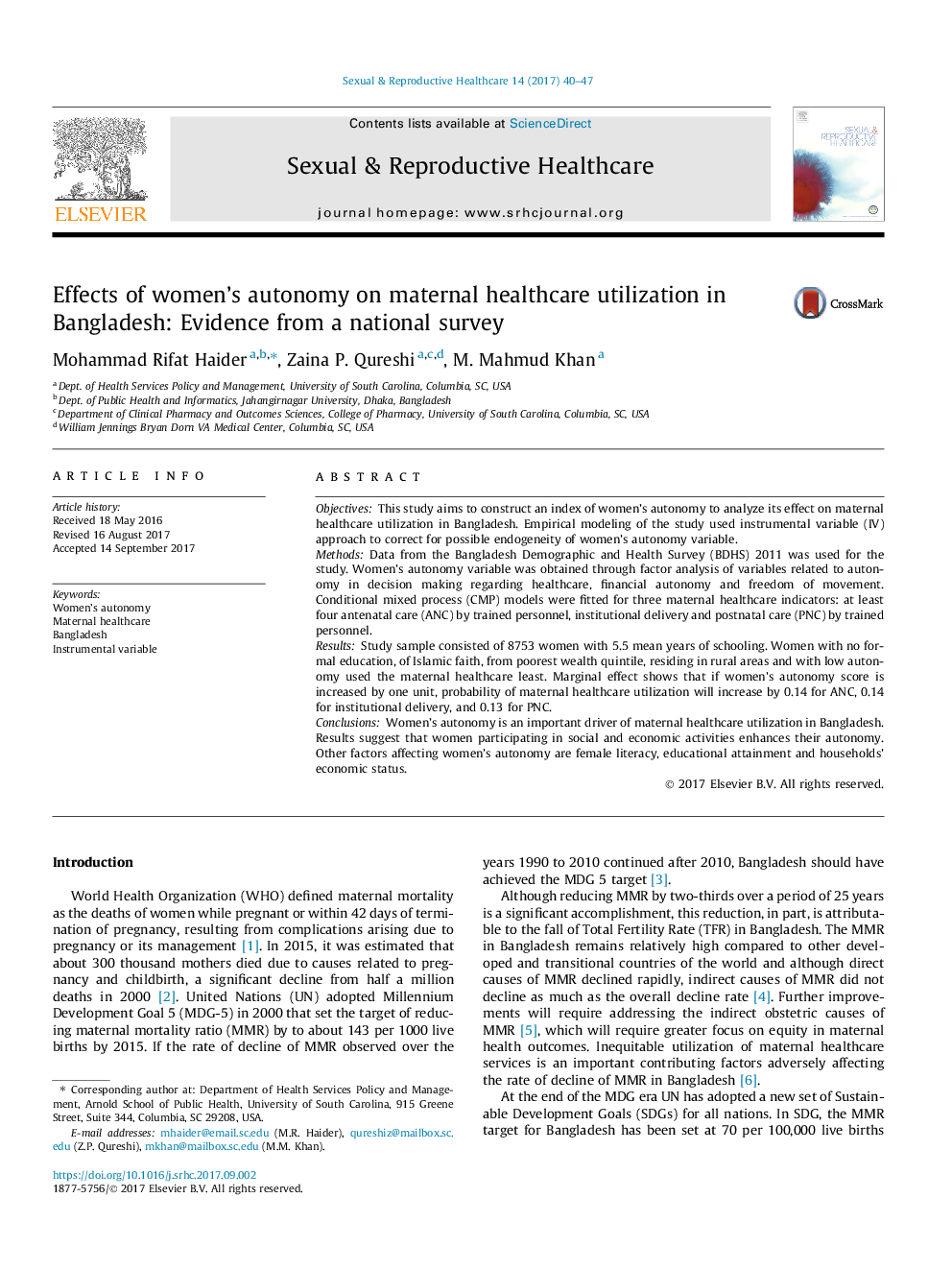| کد مقاله | کد نشریه | سال انتشار | مقاله انگلیسی | نسخه تمام متن |
|---|---|---|---|---|
| 5565935 | 1563304 | 2017 | 8 صفحه PDF | دانلود رایگان |
- This study aims to find out the effect of women's autonomy maternal healthcare in Bangladesh using theoretical perspective and instrumental variable (IV) to take care of the endogenous nature of the autonomy variable.
- Women's autonomy variable was constructed using factor analysis technique with the variables related to autonomy in decision making regarding healthcare, financial autonomy and freedom of movement.
- Conditional mixed process (CMP) models were fitted for the simultaneous nature of the equations.
- Women's autonomy is an important driver of maternal healthcare utilization in Bangladesh.
- Marginal effect shows that if women's autonomy score is increased by one unit, probability of maternal healthcare utilization will increase by 0.14 for ANC, 0.14 for institutional delivery, and 0.13 for PNC.
ObjectivesThis study aims to construct an index of women's autonomy to analyze its effect on maternal healthcare utilization in Bangladesh. Empirical modeling of the study used instrumental variable (IV) approach to correct for possible endogeneity of women's autonomy variable.MethodsData from the Bangladesh Demographic and Health Survey (BDHS) 2011 was used for the study. Women's autonomy variable was obtained through factor analysis of variables related to autonomy in decision making regarding healthcare, financial autonomy and freedom of movement. Conditional mixed process (CMP) models were fitted for three maternal healthcare indicators: at least four antenatal care (ANC) by trained personnel, institutional delivery and postnatal care (PNC) by trained personnel.ResultsStudy sample consisted of 8753 women with 5.5 mean years of schooling. Women with no formal education, of Islamic faith, from poorest wealth quintile, residing in rural areas and with low autonomy used the maternal healthcare least. Marginal effect shows that if women's autonomy score is increased by one unit, probability of maternal healthcare utilization will increase by 0.14 for ANC, 0.14 for institutional delivery, and 0.13 for PNC.ConclusionsWomen's autonomy is an important driver of maternal healthcare utilization in Bangladesh. Results suggest that women participating in social and economic activities enhances their autonomy. Other factors affecting women's autonomy are female literacy, educational attainment and households' economic status.
Journal: Sexual & Reproductive Healthcare - Volume 14, December 2017, Pages 40-47
